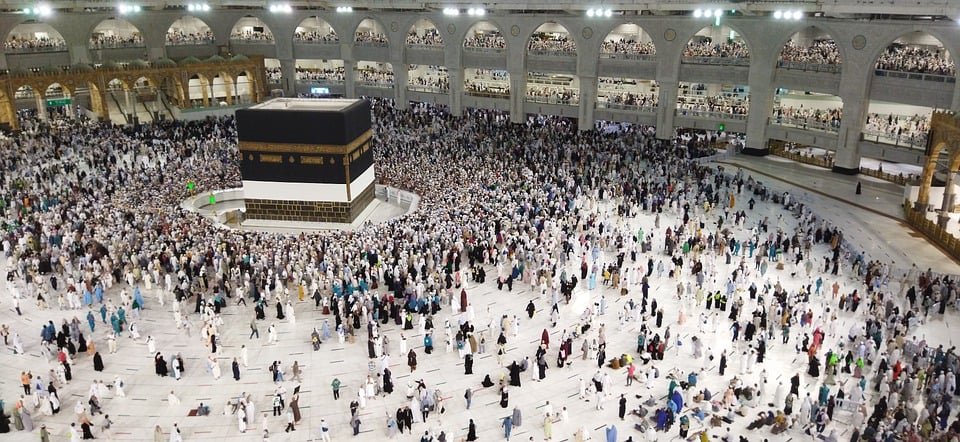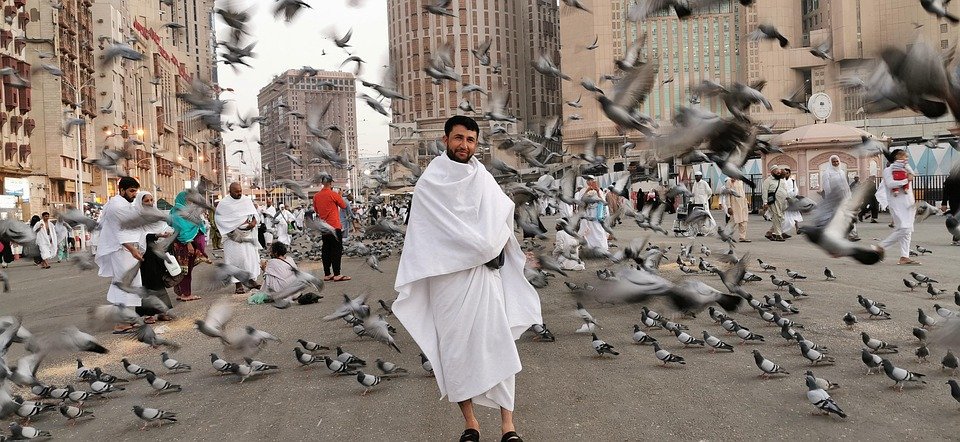Introduction
If you’re looking for a clear and reliable guide on Taraweeh prayer niyat, you’ve come to the right place. Taraweeh is a special night prayer performed during Ramadan, and having the correct niyat (intention) is essential for its acceptance. I think many Muslims, especially those new to this practice, often wonder how to make the right intention for Taraweeh. In this article, I’ll explain everything you need to know about Taraweeh prayer niyat—from its importance to the exact wording—so you can pray with confidence.
At Hajj2026.org, we’ve been helping Muslims with accurate Islamic guidance for years. Since 2016, our team has specialized in Umrah and travel services for Makkah and Madinah, giving us deep experience in Islamic rituals. I feel our expertise ensures that the information we provide is trustworthy and easy to follow. Whether you’re praying Taraweeh at home or in the mosque, this guide will help you understand the niyat properly. Stick with us, and you’ll find exactly what you need!
Taraweeh Prayer Niyat Guide for Ramadan Nights
Ramadan is a special month for Muslims around the world. One of its most beautiful traditions is the Taraweeh prayer, performed after the Isha prayer. These extra prayers help us reflect on the Quran and strengthen our faith. I think Taraweeh is more than just a ritual—it’s a time when communities come together in worship.
At Hajj2026.org, we’ve been helping travelers with their spiritual journeys since 2016. While we don’t directly organize Hajj or Umrah, we connect people with trusted tour operators for Makkah and Madinah trips. Over the past nine years, we’ve learned how meaningful these experiences are. Taraweeh prayers in the holy mosques are unforgettable, and knowing the right niyat (intention) makes them even more special.
Taraweeh Prayer Niyat
The niyat for Taraweeh is simple but important. It’s the silent intention in your heart before starting the prayer. You don’t need to say it out loud—just focus on why you’re praying. I feel that a sincere intention deepens the spiritual experience.
Here’s how you can make your niyat:
"I intend to pray two rak’ahs of Taraweeh for Allah, facing the Kaaba."
You renew this intention before every two rak’ahs. Some people pray 8, while others complete 20 rak’ahs—both are valid. The key is consistency and devotion.
What Is Taraweeh Prayer?
Taraweeh comes from the Arabic word meaning "to rest and relax." These prayers are long but soothing, giving us time to reflect on the Quran. I love how the Imam’s recitation fills the mosque with tranquility. Each rak’ah feels like a step closer to Allah’s mercy.
Many mosques complete the entire Quran in Taraweeh by the end of Ramadan. This tradition, called Khatm al-Quran, is a beautiful way to listen to the holy book. Whether you pray at home or in a mosque, Taraweeh strengthens your connection with faith.
Why Is Taraweeh Special in Ramadan?
Ramadan is the month of the Quran, and Taraweeh helps us engage with it deeply. The Prophet Muhammad (PBUH) encouraged these prayers, though they’re not obligatory. In my opinion, their voluntary nature makes them even more rewarding—you pray out of love, not obligation.
Another reason Taraweeh is special is the unity it brings. Mosques are packed with worshippers standing shoulder to shoulder. The sense of community is heartwarming. Even kids join in, learning patience and devotion.
How Many Rak’ahs Are in Taraweeh?
There’s some flexibility in the number of rak’ahs. Some follow 8 rak’ahs, while others pray 20—both have historical support. The important thing is to pray with focus and humility. I think quality matters more than quantity.
If you’re new to Taraweeh, start with a manageable number. Even 4 rak’ahs with proper concentration are better than rushing through 20. Over time, you can increase as you build stamina. The goal is to make the most of these blessed nights.
Can You Pray Taraweeh at Home?
Absolutely! While praying in a mosque has its own blessings, Taraweeh at home is just as valid. Some people prefer it for convenience, especially parents with young kids. I feel that a quiet home setting can sometimes help with deeper reflection.
If you’re praying alone, you can recite shorter surahs. The key is consistency—try not to miss nights. Even if you’re tired, a few rak’ahs are better than none. Ramadan is about effort, not perfection.
Tips for Staying Focused in Taraweeh
Long prayers can be challenging, especially for kids. Here’s what helps me stay engaged: listening to the meanings of the verses beforehand. Understanding a few words makes the recitation more meaningful.
Another tip is to take short breaks between sets of rak’ahs. Hydrate, stretch, and renew your intention. I find that pacing myself prevents exhaustion. And if my mind wanders, I gently bring it back—it’s all part of the spiritual journey.
The Rewards of Taraweeh Prayer
The Prophet (PBUH) said that whoever prays Taraweeh with faith and hope will have their past sins forgiven. What an incredible mercy! I think this promise alone makes every rak’ah worth it.
Beyond forgiveness, Taraweeh builds discipline and patience. Waking up for Suhoor, fasting all day, and then standing in prayer at night—it’s a test of devotion. But the inner peace it brings is unmatched.
Making the Most of Taraweeh Nights
Ramadan flies by, so let’s cherish every Taraweeh prayer. Whether you’re in a grand mosque or a quiet corner at home, remember that Allah values sincerity over perfection. In my opinion, these nights are a gift—let’s embrace them fully.
If you’re planning a spiritual trip to Makkah or Madinah, Hajj2026.org can guide you to trusted operators. Though we don’t arrange Hajj or Umrah directly, our nine years of experience help travelers find the best options. May this Ramadan bring you closer to Allah’s blessings!

